Your Cart is Empty
NOW FREE SHIPPING TO 48 CONTIGUOUS UNITED STATES ON ALL ORDERS!!!
Historic 1968 Fender Telecaster Bass Restored - Anatomy of a Vintage Fender Pickup Restoration
by vaughn skow February 20, 2016 3 min read
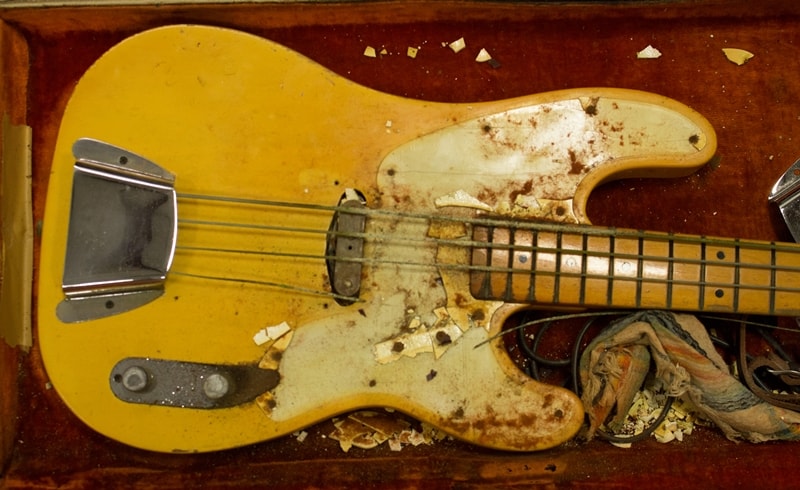
First a shout-out to my buddy John Scott at Bluesman Vintage here in Nashville for helping to make this blog (along with the restoration) possible … Thanks John! Now, let’s get into this story.
This bass is currently owned by Georgia picker Wayne Kistner who traded for it it way back in 1971 from super-picker Les Dudek who, in addition to his solo material, has played guitar with The Steve Miller Band, The Dudek-Finnigan-Krueger Band, Stevie Nicks, Cher, Boz Scaggs, The Allman Brothers and many more uber-cool cats. So, this bass has some History with a capital “H”!
Okay, so take a good look at the above pic of the bass; kinda makes you think “what the heck?” … right? Looks like some of the guitars that were found floating in a swamp after hurricane Katrina. But no, this guitar was not the victim of THAT kind of natural disaster … it was ANOTHER kind of natural disaster! You see, that early plastic pickguard (a concoction of nitric acid, sulphuric acid, cotton fibers, and camphor) was just doing what nitric acid and sulpheric acid naturally does over time … it was an agent of corrosion! If you have a vintage instrument with any plastic parts made from this highly unstable and corrosive early acid-based plastic, here is a key: Don’t keep it shut up in a case for long periods of time, because if you do, when you open the case you might well see somthing like the horror pictured here! For more on this dangerous off-gassing, read this Gibson blog on “Plastic Explosives”.
And so, this is the condition the bass was in when it hit the shop of Bluesman Vintage. They carefully disassembled her and lovingly put her back together again, cleaning and re-using as many original parts as they possibly could. The dead-as-a-doornail pickup wound up (no pun here :-) in my shop. She looked terrible … but in a cool vintage kind of way! When I cut and removed the coil, I found just what I expected: a LOT of corrosion on the magnetic pole pieces; this was probably what led to the pickups demise!
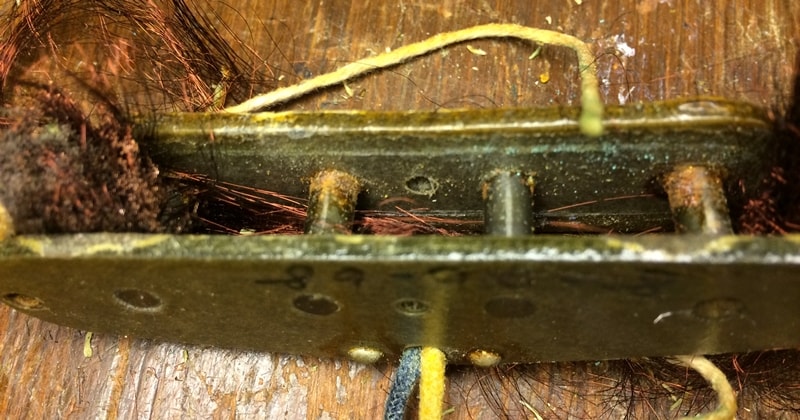
So I stripped her down and cleaned and polished her up on the inside, but left the outside looking fully “vintage”.
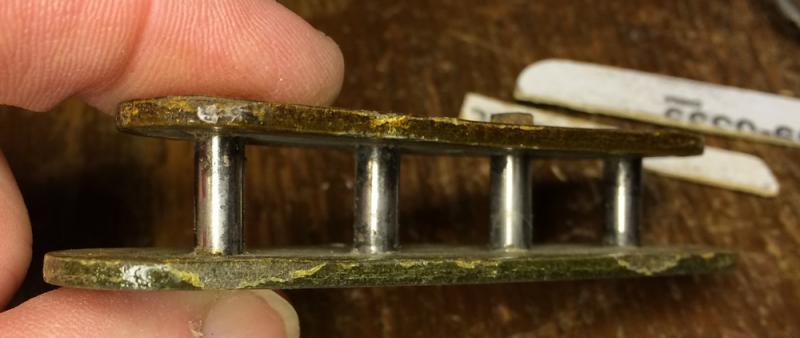
Next, I fully covered the pole pieces with Kapton tape prior to winding, to ensure corrosion would never again suppress this gal’s voice.
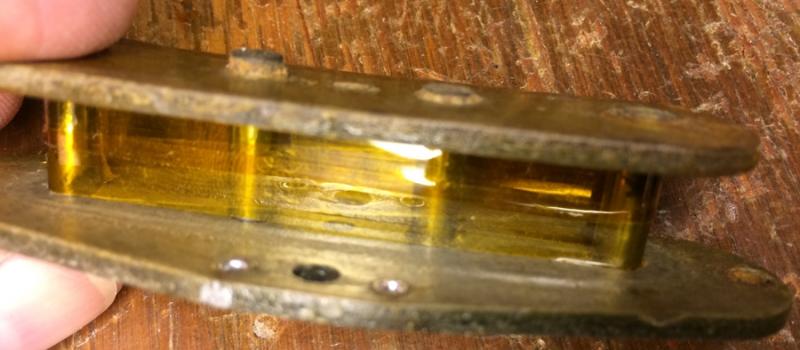
Then I re-charged the magnetic poles, which were reading nearly fully dead. Luckily, they charged nicely up to a very healthy level for AlNiCo 5!
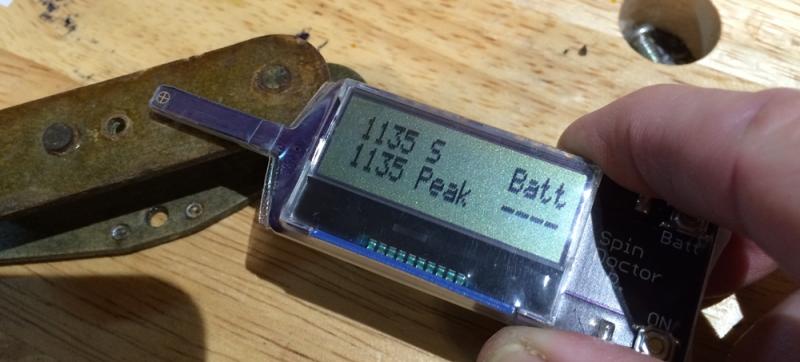
Then it was on to the hand-winder for about 10,000 turns of period correct Plain Enamel coil wire.
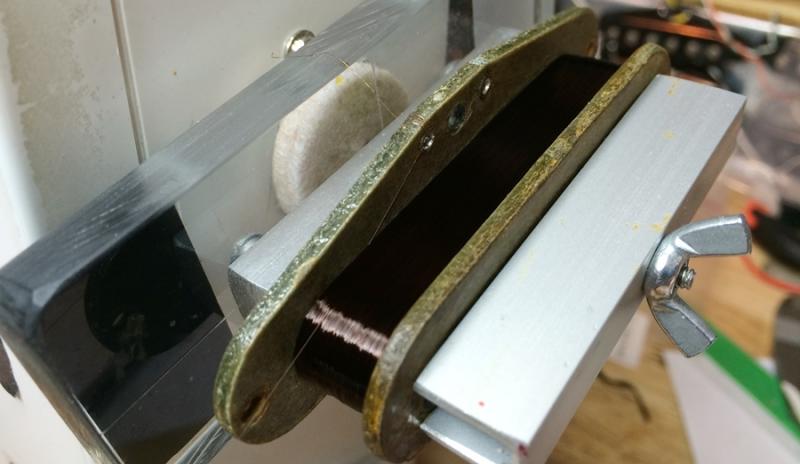
The original lead wires were re-used for historic integrity. The cotton jacket on them was flaking just a bit, and the black lead had turned more blue-ish in color, but they were fully serviceable.
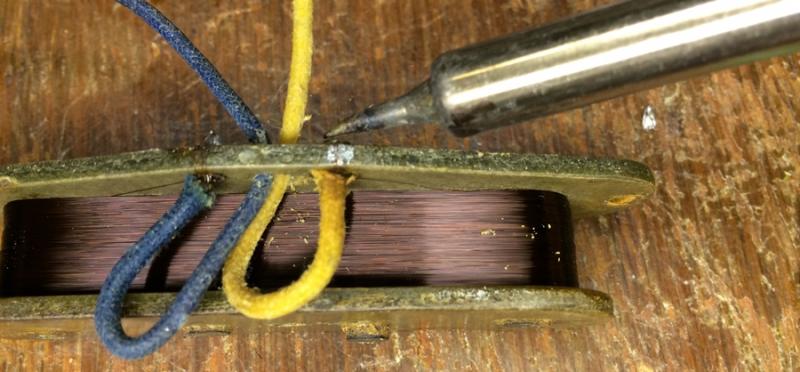
Then she got a nice comfy cotton-string protective wrap, just like she was given at birth back in 1968.
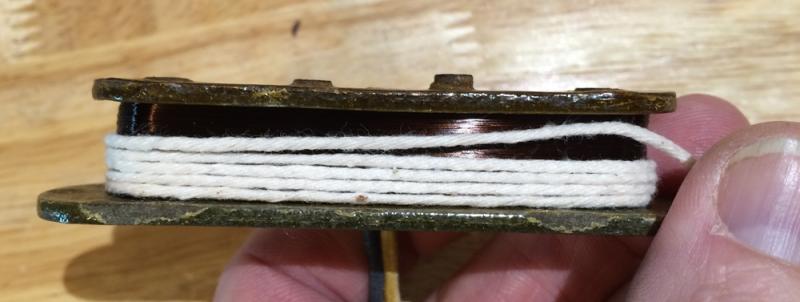
And then it was on to a nice dip in my own proprietary vintage tint lacquer potting.
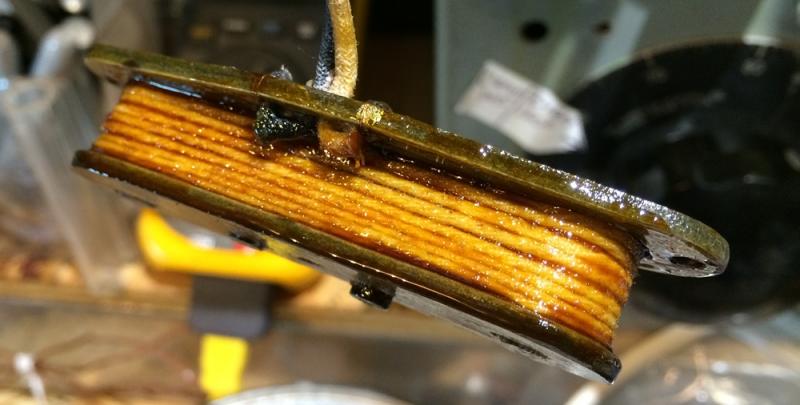
And last, we checked her vitals, just to make sure she was fully recovered and ready to once again make folks realize that, after all is said and done it really is “all about that bass”. She clocked in at a perfect 8.7K resistance and 3.66 Hernies of induction, those numbers combined with her average pole gauss readings in the 1,100 range mean she is just flat PERFECT.
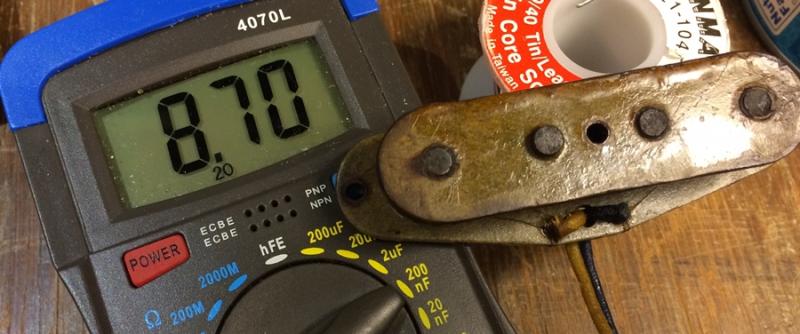
And, doesn’t she look sweet!
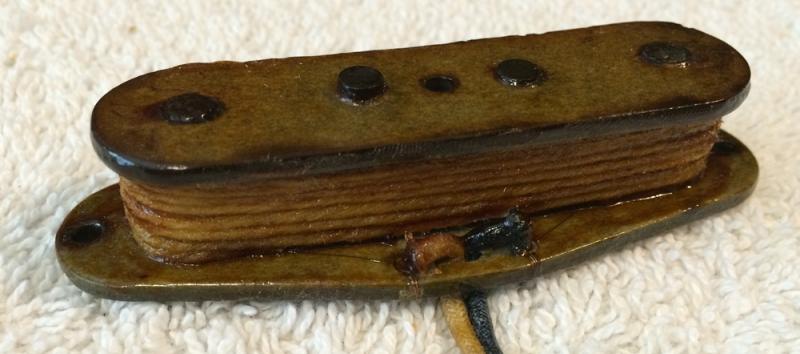
Speaking of looking sweet, I’ll end this blog with some pics of the fully restored bass. Contrast these to the pic at the top of this blog. And remember children: watch that old plastic “explosive”!
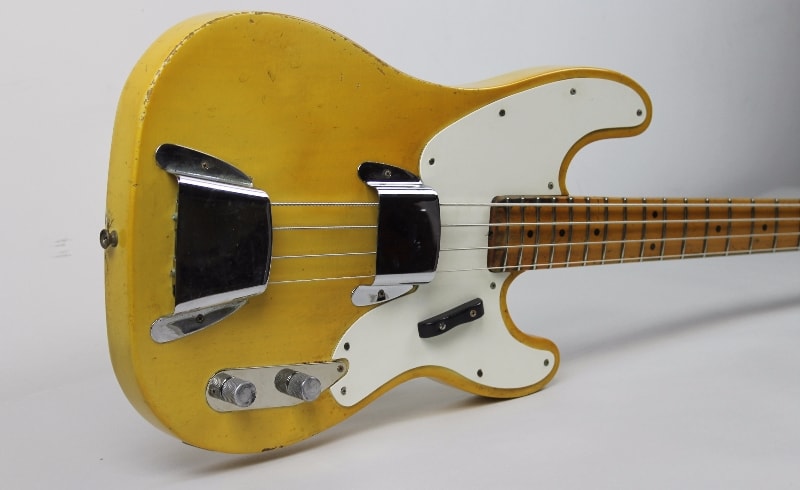
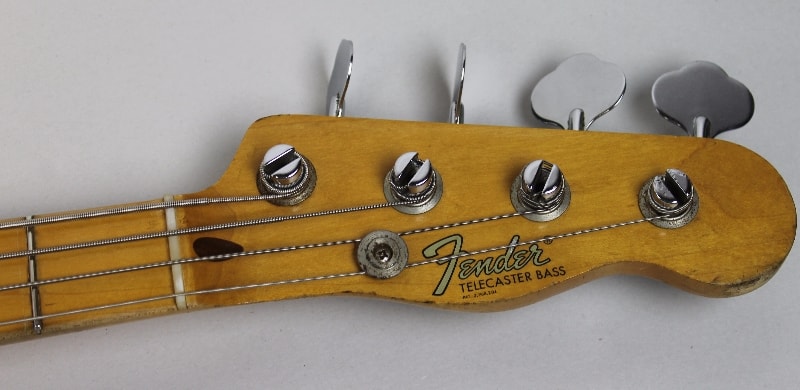
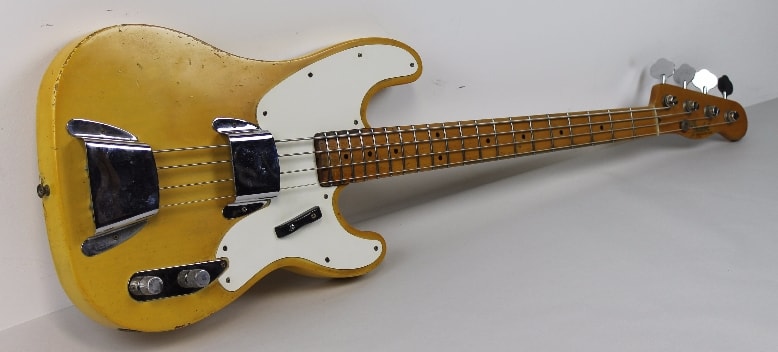

Leave a comment
Comments will be approved before showing up.
